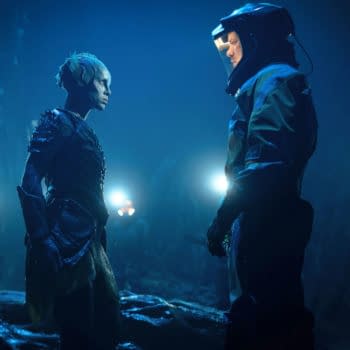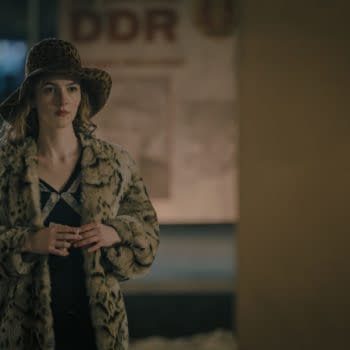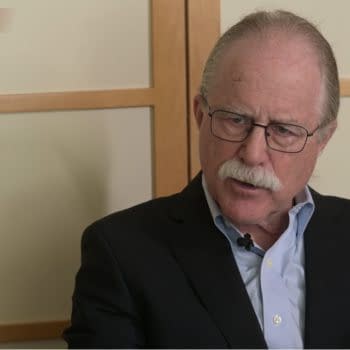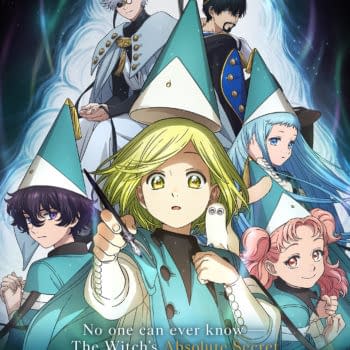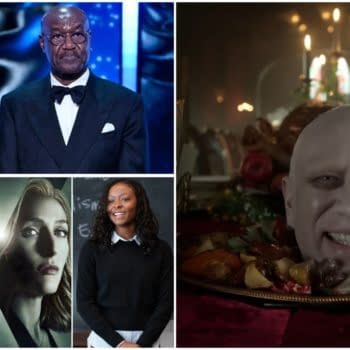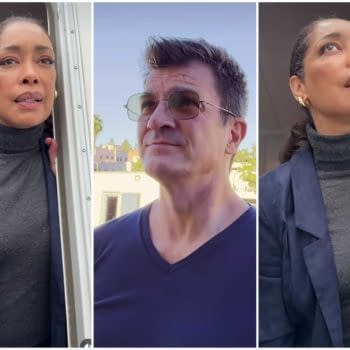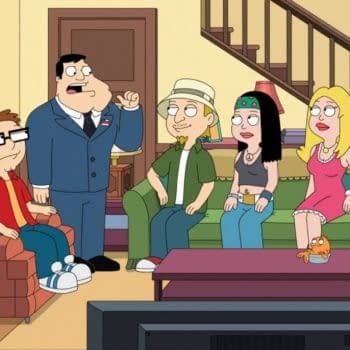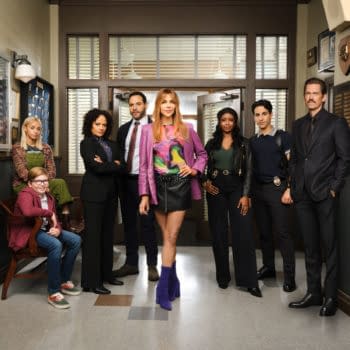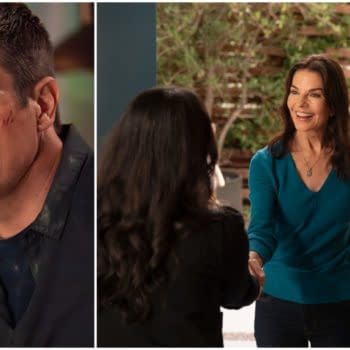Posted in: BBC, Doctor Who, TV | Tagged: bbc, bradley walsh, children in need, chris chibnall, doctor who, jodie whittaker, Tosin Cole
Doctor Who: Honouring Jodie Whittaker, Who Gave Much & Deserved More
It's the end of an era for Doctor Who once again with the final episode of Jodie Whittaker and Chris Chibnall's run on the show. We've been fans of Whittaker as the Thirteenth Doctor, even if we're not always fans of the writing.
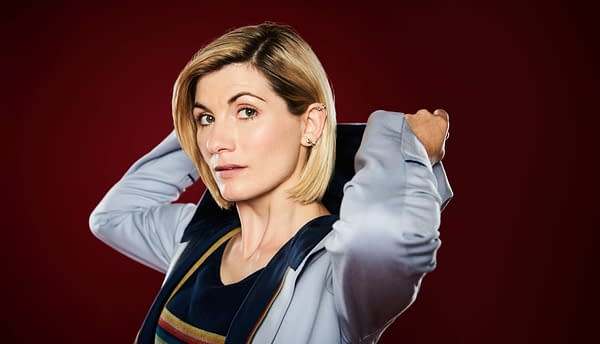
Whittaker was off to a decent start on Doctor Who. As the first canonical female Doctor, she played the character as nonbinary as Chibnall declared at New York Comic Con in 2018. With her practical non-gender-specific dress sense and unironic cheeriness, she had the demeanor of the nice lady who teaches your kids at their kindergarten and buys her organic muesli from the local co-op. She was warm and funny in a way that was different from any previous Doctor.
To say Whittaker's seasons for Doctor Who were not perfect can sometimes be an understatement, but she was never the problem. In fact, she was usually what held the show together, even when it seemed like Chibnall was more interested in writing every other character except the Doctor. She was constantly sidelined on the show when Chibnall gave more attention to the soap opera arc of Graham (Bradley Walsh) and Ryan's (Tosin Cole) relationship, where the latter gradually warmed to accept Graham as his step-grandfather. That was a prosaic plotline so mundane it could have fit into any season of Coronation Street or Emmerdale rather than Doctor Who. She was frequently sidelined by gimmicks like the reintroduction of Captain Jack Harkness (John Barrowman) and the surprise introduction of a lost incarnation of The Doctor (Jo Martin). In Flux, she was often buried under gimmicky convolutions of the plot, whose clichéd and convoluted writing saddled her with terrible speeches that failed to use her best skills as an actor.
The best moments of her first two seasons were often in episodes written by women – dealing with sexism in "The Witchfinders," getting hit on by Lord Byron in "The Haunting of Villa Diodati," but she never had the character-defining moments that her predecessors did, and even though she has had her three seasons and specials like David Tennant did, we still feel like we never saw the full version of her Doctor. Her best moment might be in "It Takes You Away," where she talks about friendship with a rogue universe that's taken on the form of a frog and having to leave that newfound friendship behind, a moment so surreal, bonkers, and poignant in addressing both The Doctor and the rogue universe's shared loneliness that it should have been the springboard for a new era of poetic Science Fiction strangeness, comedy and emotion that was never revisited on her run of the show. We feel like we haven't really gotten to know this Doctor as much as we came to know the last four.
Jodie Whittaker was The Loyal Soldier
But Whittaker never failed to support the show. She was more than a good soldier for Doctor Who. She really cared. She recorded a video of The Doctor from her home, on her phone, during Lockdown, as The Doctor at a time when everyone was scared and trapped.
Whittaker Reminded Us that Doctor Who is Here for Children
If there was one thing Whittaker understood better than the show did, it was being a friend and reassuring presence to children. Like previous Doctors like David Tennant and Matt Smith, who showed traits of being big kids, Whittaker seems to be the one that had the most rapport with them. She has been seen connecting with kids the most while promoting the series and during the BBC's annual Children in Need events. The haters who rant for hours about a woman Doctor keep forgetting that the show is here for kids, first of all, and not for their narrow-minded gatekeeping.
It's odd that her Doctor never had any episodes where she had actual interactions with children, but she's had many more outside the show. The show often neglected many parts of her personality and range, but it's especially odd that it especially neglected stories that showed her easy rapport with children.
Her interactions with kids were unforced, and it's no wonder that girls loved her. She changed the equation by giving girls a role model as well.
There's also her totally unironic fangirling over Coldplay, as when she recorded a cover for their hit "Yellow" for Children in Need in honour of the premature passing of her young nephew.
Steven Moffat's final story for Doctor Who was "The Terror of the Umpty-Ums," published on the BBC's official Doctor Who website, seemed to sum up his thoughts about the Doctor as a friend and protector of children, a fictional avatar for hope and comfort, and you read it imagining Whittaker as the Thirteenth Doctor manifesting to save a disturbed, lonely, unhappy child. You imagine Whittaker's voice reading this story. The BBC should have recorded her reading it.
We're sorry to see Whittaker go, and somewhat concerned that future Doctors will be male again, that she might be considered a tokenistic experiment as the old male-biased Doctor Who is reinstated. She must sense it, too, that her Doctor might be incomplete, judging from her stated eagerness to come back to the show at any time. Maybe we'll get more stories that round out the Thirteenth Doctor when she agrees to star in Big Finish audio dramas in a few years.
Jodie Whittaker's entire run on Doctor Who is streaming on HBO Max in the US.





